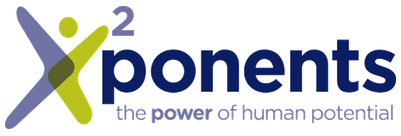Developing My Success Plan
Effective organizations don’t attribute their success to the homogeneity of their workforces. Thriving companies realize that their greatest assets are impassioned employees, working as much for their own personal development as for the company’s bottom line. Greatness is achieved through the collaboration of unique talents and visions, and realized through the alignment of an organization’s goals and that of the individual.
This symbiotic reliance defines the importance of an Individual Development Plan (IDP).
IDPs represent a learning path for the employee, and a commitment to that path on behalf of management and the organization. IDPs are not designed in a vacuum, nor should they signify unhappiness on the part of the individual regarding his or her current roles and responsibilities.
A desire to expand a knowledge and skill set should always be encouraged, and a development plan should, to some extent, be a collaborative effort between an employee and manager.
IDPs confirm an individual’s commitment to an organization, establish a vision for the future, and focus on the specifics of a learning and development path.
Whether embarking on a design of your own, or working with someone as they develop theirs, here are a few components to consider when starting an Individual Development Plan:
- Start at the Beginning: Before you embark on your journey of self-development, establish where you are at the moment. Take a formal inventory (this involves paper and pen) of your skills and strengths. Dust off your old resume and see what has changed, and who you are today. Reflect on your current position and what led you here. Did you arrive at your current role by choice and strategy or by luck, chance, and circumstance? Either way is fine. If your current reality is the product of strategy, what lessons have you learned along the way? If you happened into your present position by circumstance, now is your chance to take command of a new direction – but again, what have you learned along the way?
- Dream Big: Now that your map has a “You are Here” marker, look to the other side. Where do you want to be? Dream big. This doesn’t necessarily mean you have to envision CEO as your end goal, but identify what would bring you the greatest personal fulfillment. Maybe it is CEO. Maybe it is in a different position, department, or company. Picture yourself in that role. Now figure out the steps to get there. This may involve seeking a mentor or identifying an inspirational role model. What skills and traits do these people possess? What steps did they take to get where they are? Begin to break down your end-goal into smaller, attainable milestones.
- Focus on Milestones: Now that you have identified specific areas of focus for your development, research the educational and training programs that can best serve you. Many organizations have predetermined training paths, and offer many internal resources to help you move forward. These can involve in-person workshops, online courses, coaching and mentoring. The greatest advantage of a company-sponsored initiative is cost – which is almost universally covered by the organization. But if your company doesn’t offer advancement training, look elsewhere. The advantage to outside training is that you are not beholden to your employer for your education, and can leverage your new skills and knowledge guilt-free outside of your current role or organization.
- Map it Out: Get specific. Use a calendar. Map out a 12-month plan including titles, times, and locations. Know exactly what you will do and when. Leave nothing to chance or circumstance. Organize your vision into hard facts and completed registration forms. Often, just seeing the path lined out in black and white can invigorate your passion and motivate you to a successful completion. If appropriate, share your development calendar with your manager, mentor, or trusted colleague. If you need approval for any of your plans, now is the time to get it – in writing if necessary.
- Follow Through: This is the most fun – and challenging – part of the process. Education requires commitment, whether it is a 2-day workshop, week-long online course, or semester at night school. You must commit. This includes a commitment of time, effort, and possibly a financial stake. Include your family and significant others in your plans and aspirations – they often take a very active and important role in your successful development. Advancement requires effort, sacrifice, and community. Design a process that holds you accountable: this can be as simple as marking off empty boxes in a checklist, changing the color-code on your calendar items, or scheduling check-ins with your coach or mentor.




